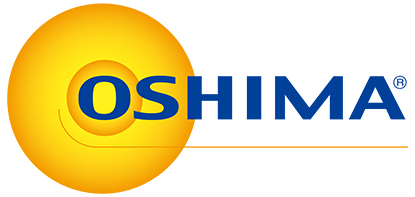Food safety machines protect food producers from costly product recalls and even lawsuits.
Much like the garment industry, the food industry has its own unique production process. Keeping food safe is a crucial task, as contaminated food that slips past inspection can harm consumers, causing serious health issues or even death. For this reason, food production plants must put in place their own food safety checks to examine products before they make it to the grocery store shelf.
Keep reading to find out what kinds of machines are needed to ensure food safety, and the benefits each machine brings to the factory floor.
Why weigh food in production?
Since food is sold to consumers in specific quantities, producers are responsible for correctly informing the public as to how much food a package carries. That’s why food regulation bodies like the US Food and Drug Administration (FDA) check food labels for accuracy.
Mislabeling products can throw food companies into hot water, even resulting in prosecution. Fortunately, the FDA and other food regulation bodies are transparent about their requirements—and food safety machines are available to help producers make sure they meet them.
What are checkweighing machines and why do we need them?
Checkweighing machines use a preset weight to weigh products and reject those that are under- or overweight. Since consumers are bound to immediately notice if a food package is underfilled, producers need checkweighing machines to make sure they’re only bringing properly filled packages to market. Otherwise, they risk a major product recall—and the profit loss that comes with providing refunds in the millions. Checkweighers can be placed at any point in the food production process. It’s not uncommon for food to be weighed multiple times during production, as this ensures accuracy and reduces the risk of improperly labeled food.
What are weighing and labeling machines and why do we need them?
Similar to checkweighing machines, weighing and labeling machines check the weight of food before labeling it. These handy machines print and attach labels for weight-compliant food products immediately after weighing, saving food production plants time that can be better spent elsewhere. The machines reject products that do not match the required weight specifications, giving food producers the chance to rectify errors before it’s too late.
Read on to learn about some more benefits of properly weighing food before shipping.
-
Production plants can avoid wasting food labels
Imagine printing and applying thousands of food labels only to discover they don’t list the product’s actual weight. Faced with an error like this, the only option is to reprint the labels and start again. The waste involved in relabeling is hugely expensive, as it’s not just labels that are wasted, but packaging too. Thankfully, this whole mess can be avoided by retrieving and printing the correct product weight to begin with by using a checkweighing or weighing and labeling machine.
-
Weighing and labeling machines save food producers the cost of manual labeling
Manually weighing and labeling food is a tedious and time-consuming task. What’s worse, it leaves room for human error, and with it the risk of under- or overfilled packaging slipping past human workers and onto store shelves. Food weighing and labeling machines remove this risk, as they weigh products to a preset weight and only print and attach labels for weight-compliant products. Automation of this scale completely removes the need for manual labor, allowing food production plants to improve their efficiency by sending staff to other departments.
-
By saving food producers from product recalls, accurate weighing protects their reputations
Product recalls aren’t just costly, they also damage producers’ reputations with consumers. With so many brands on the market, a small slip in accuracy or quality can lead consumers to stop buying your products. Why give them the chance? Checkweighing and weighing and labeling machines reduce the risk of losing consumer trust, as they reject products that do not conform to their preset weights at the factory level.
Detecting metal in food
Weighing and labeling isn’t the only safety concern for food production plants. Food safety checks must also look out for foreign objects or metal debris. Surprisingly, metal is one of the most commonly found contaminants in food, as debris from machinery or utensils can slip in unnoticed. When this happens, it risks damaging consumers’ health and the production plant’s reputation. Metal that makes its way into food packaging can also damage machinery, causing machine downtime and delaying orders.
Designed to help production plants address this concern, food metal detectors scan packaged and unpackaged food for metal items throughout the entire production process. Foil-packed items are usually scanned before packaging to avoid inaccurate detection results. Food producers must implement a solid metal detection procedure to avoid contamination and potential lawsuits.
OSHIMA food safety machines ensure only high-quality food leaves the production plant door
OSHIMA’s range of food safety machines provides high-precision, fully automated weighing and labeling for enhanced accuracy. Food production plants no longer have to worry about over- or underfilling product packaging, as OSHIMA machines work to a specific preset weight—one sensitive enough to detect even a grain of rice. The Weighing and Labeling Machine from OSHIMA can weigh up to 60 products per minute and accept up to 50 preset weight parameters. Suitable for scanning bulk food orders, OSHIMA’s Metal Detector Machine is sensitive to metal particles in even the most challenging factory conditions.
Conclusion
Food regulations are strict—and rightly so. Metal debris showing up in food is a huge safety issue, while inaccurate weighing can cause mislabeling. This is bad news for food production plants, as a damaged brand image is difficult, if not impossible, to mend. The good news is that food safety machines, like checkweighing machines and weighing and labeling machines, can help food producers avoid these dangers while enhancing their efficiency. An industry expert in food safety production machines, OSHIMA provides highly accurate machinery for all kinds of food production. Is inaccurate weighing or insensitive metal detection threatening your production plant’s operation? Talk to us today to find out more.
References
https://www.who.int/news-room/fact-sheets/detail/food-safety/
https://www.yamatoscale.co.uk/a-guide-to-checkweighing-in-the-food-industry/
https://www.foodtechbiz.com/packaging/why-checkweigher-is-important-for-the-food-industry
https://www.thermofisher.com/blog/food/what-it-says-on-the-label-matters-to-the-fda/




